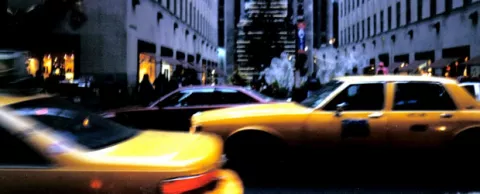
Louisville's known as the home of the Kentucky Derby. But it's also known for its traffic congestion, a distinction no city wants. Louisville Metro Government officials are taking what looks like a common sense, no frills approach to approach to solving the problem. And they want the solutions they use now to be able to accommodate additional telecommunications technology and equipment in the future. — Doug Peeples
When Louisville's roads and streets were built, the assumption was that they would be adequate for a long time – the same assumption many cities made when they designed and built their transportation systems. But since then suburbs were built in outlying areas as people moved from rural Kentucky to the city and its surrounding metro region. And traffic got worse.
As Grace Simrall, Louisville Metro's chief of civic innovation and technology, explained in an interview with GCN, "Most of the current technology is around 20 years old, if not older, and it is using twisted copper pairs to handle the connectivity. With that technology we can tell if a traffic signal's heartbeat is working and lighted properly, but there's very little that we can do with automated retiming or on-demand mitigation."
One of Metro's goals is to be able to use data that will help it mitigate traffic at a particularly problematic intersection of road corridors. The city is applying for a U.S. Department of Transportation grant to pay for a communications network upgrade that would enable it to manage the data it would collect. It also is competing for a $50,000 promotional credits grant from cloud computing platform Amazon Web Services that would enable the data collection part of the equation.
And the city is now involved in a project to improve traffic flow in the Dixie Highway corridor, a 14-mile stretch that carries traffic into downtown Louisville. An intelligent traffic management system will set traffic signal timing to reduce congestion on the corridor and will be connected by fiber optic cable to Metro's traffic management operations. The idea is that the fiber optic network would be able to accommodate future additions such as dynamic message signs and cameras. The city council is expected to vote soon on a proposed $5.4 million project to expand the existing fiber optic network.
Simrall said a rapid transit bus route that would run in priority lanes would be part of that project, and would provide opportunities for further reducing traffic congestion.
Mark your calendars for Smart Cities Week in Washington, DC...
Smart Cities Week Silicon will bring together city leaders and technology innovators to explore trends and disruptive technologies for smart cities. The conference kicks off on Tuesday, October 3 with in-depth pre-conference workshops on crucial topics such as resilience and readiness. Click to learn more and register.
Doug Peeples is a Portland, Oregon-based writer specializing in technology and energy. Follow @smartccouncil on Twitter.



